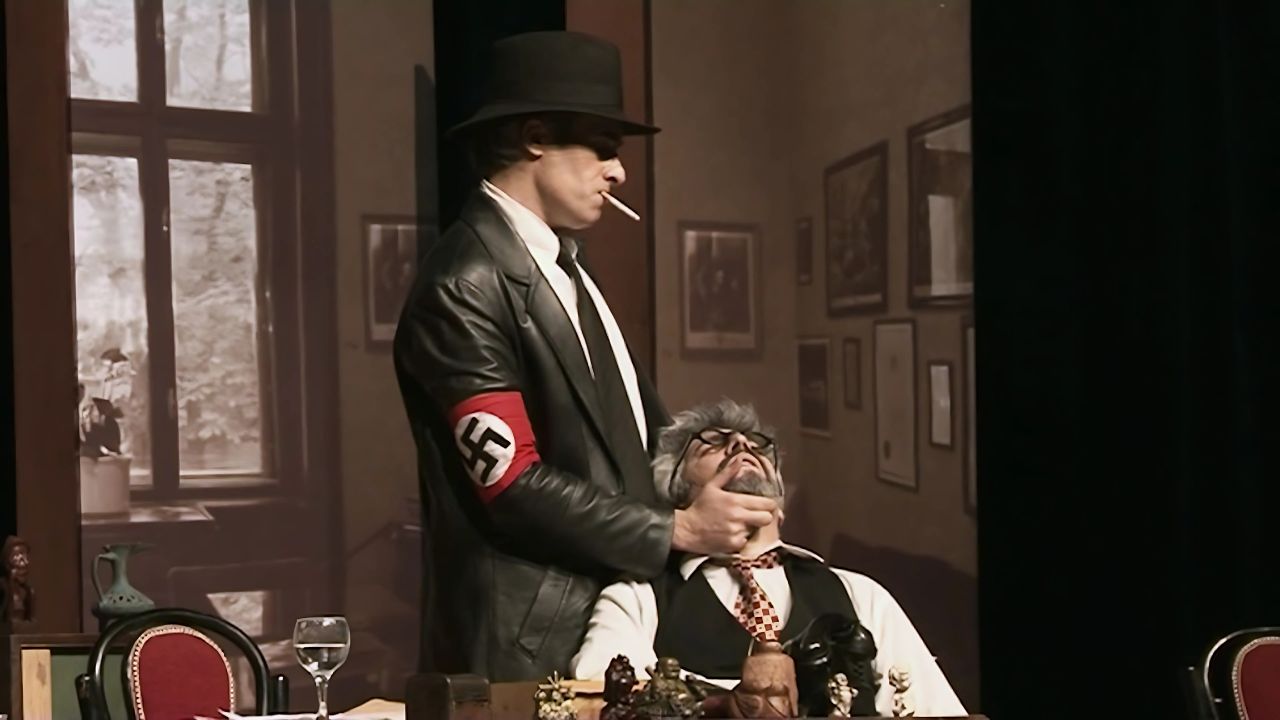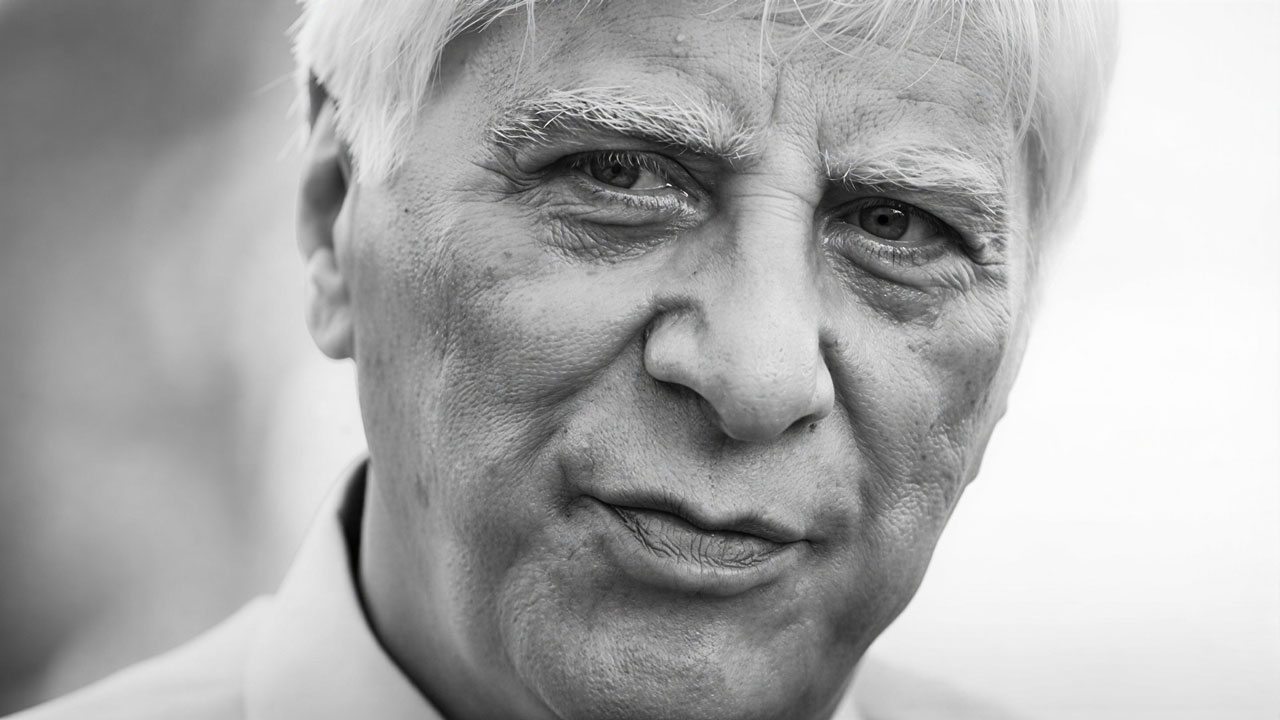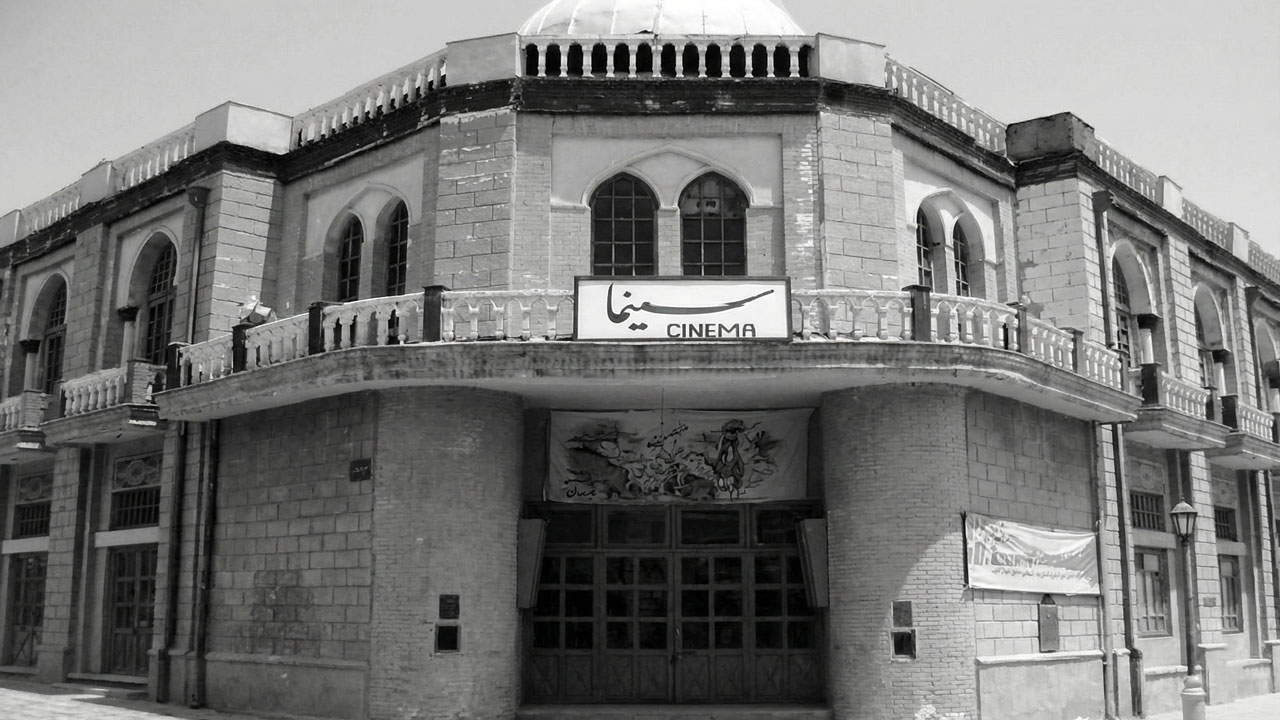
The Mystery of Having Faith in a World Full of Evil
The Visitor (French: “Le Visiteur”) is a play written by Franco-Belgian playwright Éric-Emmanuel Schmitt. In 2012, Shahab Hosseini brought a Persian adaptation to the stage at Niavaran Cultural Center in Tehran. It will soon be available online as a proshot on the Seven Skies Entertainment website.
This production is a collaboration between Shahab Hosseini and Ahmad Saatchian. Mehdi Hosseini Bejestani and Farank Heydarian also appear alongside them. The set was designed by Manouchehr Shoja, with original music composed by Alireza Saatchian.
The Visitor depicts a fictional chapter in the life of Sigmund Freud during the early days of World War II. The Nazis have invaded Austria and begun persecuting Jews. Freud, still hopeful about the future, refuses to leave Vienna. One April evening, the Gestapo arrests his daughter Anna and takes her in for interrogation. Alone and desperate, Freud is visited by a mysterious stranger who enters through the window. The visitor arrives with skepticism—and extraordinary things to say. Who is he? A madman? A magician? A dream? A projection of Freud’s subconscious? Or is he, as he claims, God? Like Freud, we are each left to decide who the visitor truly is over the course of this intense and disorienting evening. Hosseini plays the role of the mysterious guest.
Schmitt has said his aim as a writer is to explore philosophical ideas in ways that remain accessible—something clearly present in The Visitor. The play centers on themes such as the human condition, belief or disbelief in God, the consequences of war, and the rise of Nazism.
“Our society in recent decades has prioritized physical needs over spiritual and emotional ones. Look at how many fast food places—Italian, Japanese, Chinese, Mexican—have popped up in Iran. It shows how much we’re chasing variety and physical satisfaction, while becoming indifferent to what the soul really needs. Now, compare that with the number of new theaters, libraries, or cinemas… When a society turns to surface living, and its greatest sorrow becomes bread, it ends up deepening its own problems. With proper spiritual nourishment, one can find answers in contemplation, and come to peace. But sadly, few have the patience for that.”
“How can one have faith today, in a world where bombs still destroy, racism still rages, and humans invent death camps? How can one still believe in kindness in such a criminal century? In this play, Freud and the stranger have much to say to one another—because neither believes in the other.”


